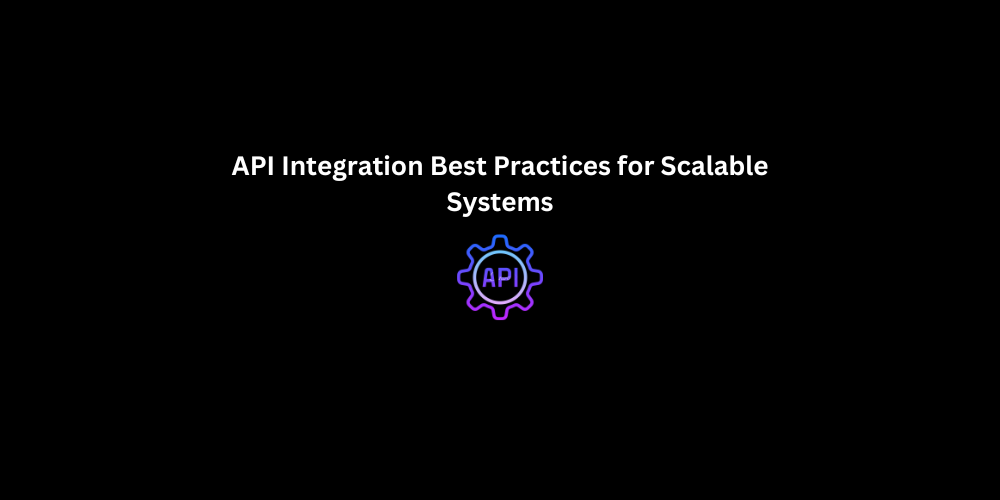Nowadays, businesses rely on multiple software tools, platforms, and systems to run their operations smoothly. Whether it’s connecting your CRM with a custom-built app, syncing your ERP with your eCommerce store, or integrating third-party payment gateways—API integration plays a critical role in building scalable and efficient systems.
This blog will guide you through API integration best practices, especially when building custom solutions for long-term scalability and performance.
What Is API Integration?
API (Application Programming Interface) integration is the process of connecting two or more software applications to enable them to communicate and share data automatically. It allows different tools—like your website, CRM, ERP, or mobile app—to work together seamlessly.
Why API Integration Matters for Scalable Systems
- Improves automation: Eliminates the need for manual data entry.
- Enhances user experience: Ensures real-time data sync across platforms.
- Boosts performance: Enables faster and smoother business processes.
- Supports scalability: Lets you expand systems without overhauling your infrastructure.
- Future-ready: Easily plug in new tools or technologies as your business grows.
API Integration Best Practices
1. Use RESTful APIs for Simplicity & Flexibility
REST APIs are lightweight, fast, and easier to maintain. They’re perfect for building scalable custom web or mobile applications that need to grow over time.
2. Ensure Strong Authentication & Security
Use secure tokens (OAuth 2.0), SSL encryption, and access controls to prevent data leaks or unauthorized access.
3. Use Middleware for Better System Communication
Middleware platforms help manage multiple APIs by acting as a connector or data pipeline between applications. This helps maintain clean and manageable integrations.
4. Version Your APIs
Always version your APIs (e.g., v1, v2) so that updates don’t break existing functionality. It allows your systems to scale while staying stable.
5. Optimize API Calls
Reduce payload size, use caching where possible, and avoid unnecessary API calls to ensure your system remains fast and responsive.
6. Log & Monitor Everything
Use logging tools to track usage, failures, and performance issues. Proactive monitoring helps in quick troubleshooting and system reliability.
7. Build with Future Integrations in Mind
When building a custom ERP or SaaS system, always leave room for future integrations—whether it’s payment gateways, third-party CRMs, or analytics tools.
Why Choose 3techno for API Integration & Custom Solutions?
At 3techno, we specialize in building scalable custom software solutions tailored to your unique business needs. From web and mobile apps to ERP and CRM integrations—we help companies streamline processes, improve efficiency, and grow faster.
Expert in REST & GraphQL API integrations
Custom ERP, CRM, and eCommerce integrations
Scalable architecture built for future growth
Proven track record with enterprise and mid-size businesses
Final Thoughts
API integration is not just about connecting two systems—it’s about building a reliable, scalable digital ecosystem. By following the best practices outlined above, your business can create a seamless flow of data, reduce errors, and prepare for future growth.
Ready to Build a Scalable, Integrated System?
Contact 3techno today for a free consultation on your API integration or custom solution needs. We build technology that grows with your business.
Frequently Asked Questions (FAQs)
Q: What is the difference between REST and SOAP APIs?
A: REST APIs are simpler, faster, and use lightweight formats like JSON, while SOAP is more structured and commonly used in legacy systems.
Q: How does API integration help in business automation?
A: It connects systems and automates data sharing, reducing manual effort and speeding up operations.
Q: Can API integrations be customized for my specific business needs?
A: Yes. At 3techno, we build custom API solutions that align with your business logic and goals.
Q: How do I know if my system needs API integration?
A: If you use multiple platforms (e.g., CRM, ERP, website), API integration can improve communication, reduce duplication, and enhance performance.

